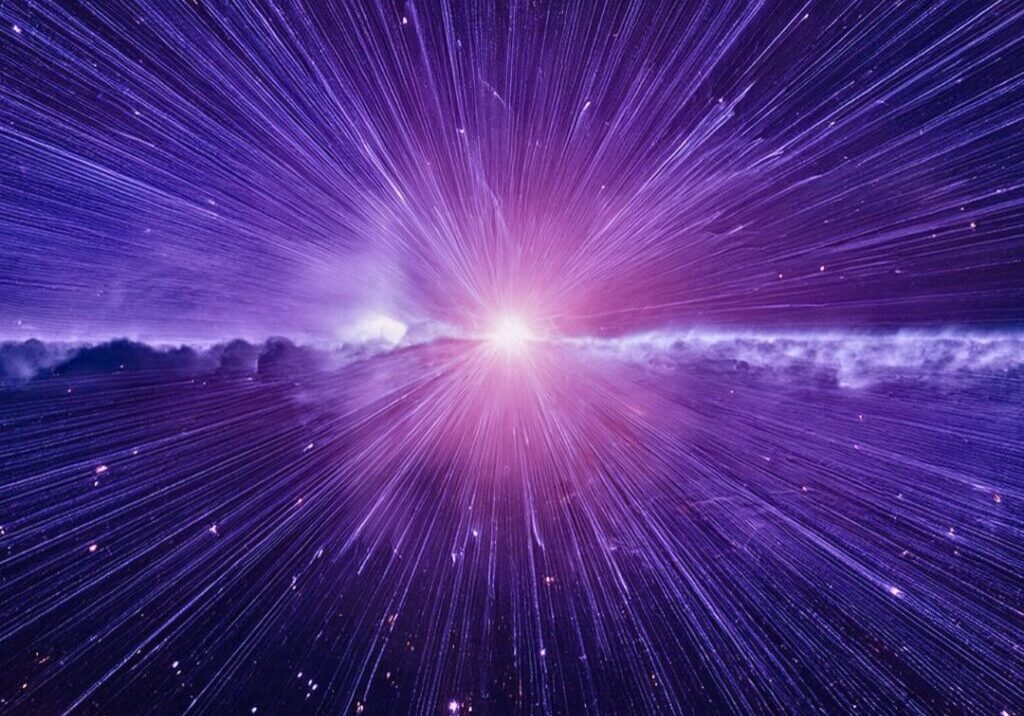The Wisdom of the Cross
The paschal mystery is the center of Christian theology. The re-enactment of the last supper and the betrayal of Jesus, followed by his sentence of crucifixion, speak to us of human sorrow, violence and abandonment. An innocent man, driven by his prophetic mission of God’s in-breaking reign, despised by many and led to the slaughter of the cross, suffered a form of punishment reserved for the worst offenders. We read the passion narrative, word by word, as a dramatic reenactment of the crucifixion event because it is all too human. Every person can identify, in some way, with the suffering and death of Jesus of Nazareth: the wounds, the blood, the agony and pain of suffering the cruelty of other humans. We may experience these same wounds within ourselves and among ourselves. We humans suffer because of physical weakness, illness, emotional instability, psychological wounds, past hurts; we suffer through physical wars and mental wars; through physical breakdown and mental breakdown. But we humans do not suffer alone, all nature suffers; animals suffer abandonment and cruelty, trees suffer the torture of the axe, fish suffer the strangulation of plastics. All creation cries out in pain, to be liberated and set free (cf. Rm 8:22). The agony of Jesus is the cry of the earth.
Charles Darwin spoke of evolution as “red in tooth and claw,” a competition for limited resources and thus a survival of the fittest. Teilhard de Chardin did not accept Darwinian evolution as the best explanation for unfolding life, primarily because there is a power in evolution that escapes the forces of entropy. This power is God Omega, the power of infinite and unconditional love that cannot be extinguished by physical forces. God is within everything that exists and the future of everything that exists. Teilhard spoke of the God-world relationship as one of creative union. There is a genuine “complementarity” between God and the world, forming a naturally interrelated and complementary pair. God is distinct from the world but personally united in a relationship of love. The heart of creation is God’s self-involving love. Teilhard perceived that something is going on in creation that escapes the physical eye but is open to the eye of the heart. God is sensed as “rising” up or “emerging” from the depths of matter, born not in the heart of matter but as the heart of matter. (1) This presence of God becomes explicit in the life of Jesus whose unitive consciousness of divine presence impelled him to speak and act from a new center. The immanent presence of God, the explicit God-consciousness of Jesus, became an explosive revelation of God in the world. Acting in the name of God was the cause of Jesus’ death sentence.
Was Jesus’ death a necessary death? Did Jesus have to die on a cross? If we accept the full humanity of Jesus then must say, ‘no,’ his death was not necessary; Jesus could have chosen otherwise. Yet, the uniqueness of Jesus is precisely what he exemplifies, that a unitive God consciousness will entail suffering and death. The Franciscan theologian, Bonaventure, put it this way: “There is no other path than through the burning love of the crucified.” (Itin. 7.6) Bonaventure was a mystical theologian who described suffering and death as the fullest expression of love. He wrote: “Whoever loves this death can see God. Let us, then, die and enter into the darkness; let us impose silence upon our cares, our desires and our imaginings. With Christ Crucified let us pass out of this world to the Father.” (2)
Bonaventure’s words conflict with our modern experience. To desire suffering and death seems contrary to our desire for the fullness of life; no one wants to suffer let alone die. But this is the mystery of the God-man. The wisdom of the cross is the wisdom of God; the logic of the cross is the logic of love not a logic of the intellect. Christianity makes no sense to the rational mind because it subverts deductive reasoning. It is instead the intense experience of God. The hymn, “Were You There?” written from the experience of slavery, is a remembrance, an anamnesis of faith in a liberating God. God symbolizes the wholeness of life and one who experiences God is empowered to act in the name of freedom, for where there is perfect love, there is perfect freedom. The person who loves and is truly free can freely resist powers of oppression, powers of violence, and powers of hate. The one who is free in love sees a new future of life and is willing to act for the sake of more life. The actualization of divine love in the life of Jesus was shown in his willingness to undergo a tortuous death on the cross. Jesus died a cruel death; yet one that he freely consented to precisely because the love of God pervaded his soul. Love does not negate agony or abandonment; indeed, God’s love is most powerful in weakness, as Saint Paul writes: “When I am weak, then I am strong.” (2 Cor 12:10)
Franciscan theologians place an emphasis on love as the fundamental reason for the incarnation; the arc of divine love spans from the birth of Jesus to the culmination of his life in death and resurrection. This emphasis on the power of divine love endures throughout life’s sufferings, including the whole span of creaturely life in evolution, and is symbolized by the cross and resurrection of Jesus Christ. Nature is cruciform. Franciscan theologian Zachary Hayes wrote, “isolated, independent existence must be given up in order to enter into broader and potentially deeper levels of existence.” The environmental philosopher Holmes Rolston states that death is what makes life possible. There is a struggle throughout nature for survival and yet there is a capacity to evolve despite suffering and death. Life seeks more life:
This whole evolutionary upslope is a calling in which renewed life comes by blasting the old. Life is gathered up in the midst of its throes, a blessed tragedy, lived in grace through a besetting storm… The cruciform creation is, in the end, deiform, godly, just because of this element of struggle, not in spite of it. There is a great divine ‘yes’ hidden behind and within every ‘no’ of crushing nature… Long before humans arrived, the way of nature was already a via dolorosa. In that sense, the aura of the cross is cast backward across the whole global story, and it forever outlines the future. (3)
Entering into the passion and death of Jesus of Nazareth may console us because we believe that God knows our sufferings, that Jesus died for our sins, that faith in Jesus will save us. But if this is our theology then we have missed the wisdom of the cross. Saint Francis of Assisi knew too well that literal imitation of Jesus or a type of servile theology is not what God is about. “I have done what is mine to do,” he said, “may Christ teach you yours.” We are not to imitate Christ or throw ourselves onto Jesus to save us; rather we are to do the same as Jesus. His humanity is our humanity; his openness to God is our openness as well. We are to “put on Christ,” that is, we are to become the new presence of divine love in the world, to incarnate God who is seeking to become embodied and actualized in human agency.
Evil and suffering express something of the “dark side” of God, the unfulfilled God. God is hidden in the chaos of creation seeking to come to light. Theogenesis, as Carl Jung proposed, is the reconciliation of opposites by which God rises from darkness into light. Divinity and humanity must find one another on a higher level of unitive consciousness. We are the rising-up of God in evolution. When our minds and hearts expand in love, God is born in us and through us into the universe; the world moves ever closer toward Omega.
Good Friday is not a reminder of what God has done for us, it is reminder of what we must do for God: the ego must die for the self to be born, and such a death may cause us to act in such a way that involves the totality of our lives. Christian love is costly love, and no other love will suffice. Death, therefore, is our deepest reality not our greatest threat. We modern humans refuse to die by grasping things that offer the illusion of power; however, in doing so, we are in conflict with one another and killing the planet. Our rejection of the cross in our consumer-driven, monetized world may be our greatest downfall. There is simply no God “up there” or “over us” taking care of us; the God of Jesus Christ is here, now, within us and among us. We are the body of Christ and only a realization of cruciform love in our personal lives will lift up the cross of the world and transform the sufferings of our present age into the new light of the resurrection.
We celebrate “Good Friday” because the power of divine love is unstoppable. Like Jesus, we must decide what path we will follow, the lure of the present world or the promise of new life. The Good News should disturb us to the point where we can no longer sit comfortably in our seats or pray as if God will take care everything, for there is no other Christ than you and me; and if we choose to incarnate God’s love then death will not be a defeat but a choice for the future.
Footnotes:
(1) Thomas King, SJ, Teilhard’s Mysticism of Knowing (New York: Seabury, 1981), 103.
(2) Bonaventure, Itinerarium mentis in Deum 7.6 (5:312), trans. Ewert Cousins, Bonaventure: The Tree of Life, The Major Life of St. Francis The Soul’s Journey into God (Mawah, NJ: Paulist Press), p. 16.
(3) Holmes Rolston, “Creation as Kenosis,” pp. 59–60.
 View print-friendly version
View print-friendly version
5 Comments
Related Posts

The Earth Groans, AI Grows: Who Guides the Flame?
In this critical moment of planetary history, where ecosystems collapse, artificial intelligence proliferates, and human meaning trembles on the edge of uncertainty, we are faced with a profound question: What kind…


Francis of Assisi is known to have said, “I have done what is mine to do. May Christ teach you what is yours.” In today’s world, many people lack the basics. When people can get the basics, it is natural to want and try for things beyond the basics.
I firmly believe our journey to wholeness takes us beyond survival needs. So much more work and many more relationships are needed to move someone from shelter, security, food and clothes to education, independence, income, health and MEANING and PURPOSE. For me, this is the next level of needed intervention. The next point of ” Jesus work”
But how to reach children with such information when schools are so “test centered” the curriculum has no space for other topics? How to gain pulpits, when calendars are packed with “masses for the dead”, reconciliation, gifting or other ” important ” topics?
Jesus told us,” I have done what is mine to do..may Christ teach you yours”. Jesus did this “his way”, made his own decisions and set in motion just one interconnected strand of history(albeit a large one!). So the question becomes how do we ” do Jesus ” “our way” and take this “strand” we are weaving to the Jesus level of impact?
Yes, Jesus did all the “first rung” absolute must haves in order to assure his followers had food, water, but he also interjected something more than survival ( the feeding) he taught, interpreted law, healed, brought calm and order. People felt changed.
That’s what we need to aim for. How to bring this change. Yes, we feel different once physically fed.and cared for..but oh how different our spirit feels when spiritually fed!
Namaste
Kay
Hi George! I am not Ilia, yet I firmly believe our journey to wholeness takes us beyond survival needs. So much more work and many more relationships are needed to more someone from shelter, security, food and clothes to education, independence, income, health and MEANING and PURPOSE. For me, this is the next level of needed intervention. The next point of ” Jesus work”
But how to reach children with such information when schools are so “test centered” the curriculum has no space for other topics? How to gain pulpits, when calendars are packed with “masses for the dead”, reconciliation, gifting or other ” important ” topics?
Jesus told us,” I have done what is mine to do..may Christ teach you yours”. Jesus did this “his way”, made his own decisions and set in motion just one interconnected strand of history(albeit a large one!). So the question becomes how do we ” do Jesus ” “our way” and take this : strand” we are weaving to the level which Jesus dudes level of impact?
Yes, Jesus did all the “first rung” absolute must haves in order to are about something more than survival ( healing, feeding) but he also taught, interpreted law, brought calm and order. People felt changed.
That’s what we need to aim for. How to bring this change. Yes, we feel different once physically fed…but oh how different our spirit feels when spiritually fed!
Namaste
Kay
Christ came and his Spirit is present for a specific reason. The fall of man was a great psycho-spiritual catastrophe, like a three-story building collapsed in on itself by a bomb. Shades of Ukranian images on the evening news. No small ruination. The lower level is the body, which post-fall became a mortal thing subject to infirmity, though allowed to sustain the shaky upper floors (soul and spirit) for a period. The third floor (spirit) fell into the second floor (soul), leaving both in a state of total wreckage, confusion, and degeneracy. It left the soul mainly self-referenced, serving lower-level survival and instinctual needs of the senses and body. And withal, it obliterated the spirit, once the guiding light of both soul and body, rendering it subservient to the latter’s interests, in opposition to the divine law and presence. Unitive consciousness was lost to egoism and dualistic thinking, leaving human inhabitants, their environs, and relationships in a pitiable state. But take heart. Christ has come, died, risen, and will come again to fully redeem humankind from the aftermath of this dilemma. Such insufficiency is our kenotic hope this Lenten and Easter season. Likewise, Ilia, with gratitude for this and other thoughtful offerings throughout the year.
Excellent essay, though I wish Ilia had emphasized what is “ours to do”–to defend the vulnerable, heal the sick, lead nations away from war and coercion to peaceful cooperation. The holiness of the cross is good news; the love of humanity for humans and non-human creatures and our vulnerable habitat may be even better news.